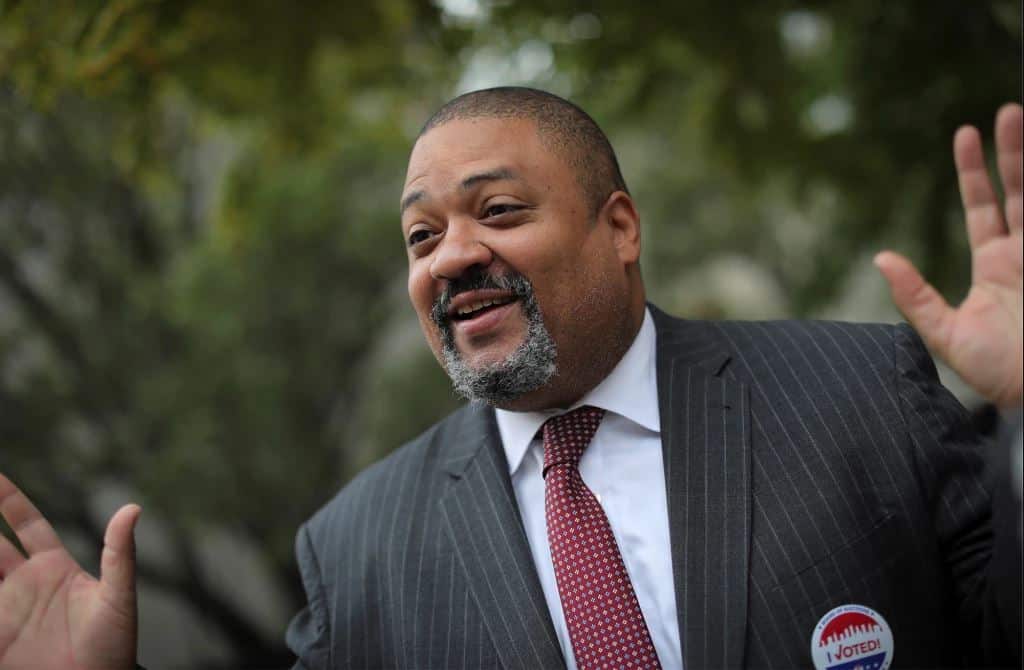Below is my column in Fox.com on the indictment of former President Donald Trump and how this case is a test not just for Trump but the New York legal system.
Here is the column:
Oscar Wilde once said “The only way to get rid of a temptation is to yield to it. Resist it, and your soul grows sick with longing for the things it has forbidden to itself.”
With the release of the indictment of former President Donald Trump, Manhattan District Alvin Bragg has revealed himself as a follower of the Wilde school of legal thought. Bragg knew that he had no criminal case against Trump. However, after running on bagging Trump for some crime (any crime), Bragg knew that many would not care if he had a basis for a criminal charge. He would be lionized to be the first person to ever indict a former president in the blind rage against Trump.
After charging Trump with 34 counts, Bragg insisted that he will convict Trump of the “crime to promote a [political] candidacy through unlawful means.” He insists that he will prove “attempts to violate state and federal election laws.”
For months, many have raised objections to the effort of Manhattan District Attorney to use a flawed legal theory to essentially litigate a federal election violation that the Justice Department opted not to charge. This bootstrap theory has been widely criticized, but many in the media sought to cut off that debate by suggesting that Bragg might be basing his prosecution on some unknown crime. Last week, Michael Cohen’s attorney Lanny Davis went as far to “warn all the pundits and everyone speculating…that there are lots of facts, lots of documents, lots of evidence of multiple crimes.”
We now have the indictment, and it is basically what many of us anticipated. It is a series of stacked counts of falsifying business records for the purpose of influencing the election. The indictment seems to address the lack of legal precedent with a lack of specificity on the underlying “secondary” felony. Bragg has done nothing more than replicated the same flawed theory dozens of times. This is where math and the law meet. If you multiply any number by zero, it is still zero.
If the New York bench retains any integrity, this case will be thrown out as legally improper with an admonition to Bragg and his office for politicizing the criminal justice process. That, however, may be asking a lot of state judges who are elected on both the trial and appellate levels. They also may prove to be lawyers on the Wilde side.
The cost, however, to the legal system will be immense. In a single indictment, Alvin Bragg bulldozed any high ground that the Democrats had after January 6th. He has fulfilled the narrative of the Trump campaign by supplying a raw and undeniable example of the politicization of the legal system. What is most shocking is that this attack on the rule of law was met with the rapturous applause of many, including lawyers and legal pundits. They not only will ignore the affront to the integrity of our legal system, but celebrate its demise.
Bragg himself threw a flag on the effort to indict Trump being pushed by a lawyer brought in as a special assistant district attorney for that purpose. Mark F. Pomerantz and his colleague Carey R. Dunne resigned — and their resignation letter was then leaked to an eager media. Pomerantz then took a step that floored many of us: he wrote a tell-all book based on the still ongoing investigation. However, Pomerantz admits that career prosecutors balked at his radical proposals to find a crime — any crime — to nail Trump. That included an entirely bonkers money laundering charge against Trump where he would be the victim of an extortion effort. In his book, Pomerantz admits that “many of the lawyers were relentlessly negative.” Some prosecutors were clearly so upset by his efforts that they “defected” from the team. He also admitted that Bragg told him “that the consensus among the group of prosecutors with whom he had been speaking was not to go forward.”
Despite objections from his colleagues who said he was undermining their efforts, Pomerantz published a book making the case against an individual who was not charged, let alone convicted. It was a grossly unprofessional and improper act. It also worked. Bragg caved to the overwhelming pressure that followed. If figures like Pomerantz was going to yield to temptation, why shouldn’t he? After all, no one wants to be the last ethical lawyer when everyone else is cashing in.
I remain hopeful that there remains a modicum of judicial integrity in New York to stand against this effort. However, this is a defining moment for many who have rationalized this abuse of the criminal justice system. For those attorneys, they have reached the point described by Robert Oppenheimer after the development of the atomic bomb. He stated “In some sort of crude sense which no vulgarity, no humour, no overstatement can quite extinguish, the physicists have known sin; and this is a knowledge which they cannot lose.”
The same is true for many in our profession. While some of us have warned that Mar-a-Lago could present a serious threat to Trump, we have warned that the Bragg prosecution is the denial of the core legal principle of blind justice. This expensive, drawn out effort would not have occurred for anyone other than Donald Trump. It is not just selective prosecution, it is exclusive prosecution for Trump and Trump alone.
There is a good-faith debate over whether the President should be charged over conduct related to Mar-a-Lago and possible obstruction of justice. This is not that case. For those lawyers applauding this ignoble moment, this is our sin as a profession, and it is “knowledge which they cannot lose” in the years to come.
Reprinted with permission from JonathanTurley.org.


